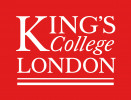© Pint of Science, 2025. All rights reserved.
We talk about how we can investigate the underpinnings of disease to navigate the maze of what happens to our bodies when things go wrong. Our speakers will talk about how we can create new ways to use imaging technology to look at what's going on inside the body from the outside, and how we can use that to find a way to treat patients.
How to save lives, and irradiate people
Matt Farleigh
(PhD Researcher in Imaging Chemistry)
On earth we are constantly bombarded by radiation! Quick, slap on some sunscreen, put on your tin foil hats, and buckle up for this talk. We will investigate how radiation affects our health, and the ways it can be used for good in the science of nuclear medicine.
Building an army – how cancer cells harness the power of immune cells
Renée Flaherty
(Postdoctoral Research Associate)
Cells of the immune system play a vital role in the fight against cancer. However, cancer cells have clever ways of utilising the power of immune cells for their own gain – turning good immune cells bad. Cancer cells are able to recruit an army of these corrupted immune cells that can break down barriers and protect cancer cells from attack. Targeting these cancer-associated immune cells may prove a useful strategy in the treatment of cancer.
Don't stress about oxidation
Ed Waters
(Postdoctoral Research Assistant)
Oxidative stress is a term that describes an imbalance between the production of free radicals and the ability of the body to detoxify their harmful effects with antioxidants. There is an erroneous belief that by eating certain foods and taking supplements we can utilise antioxidants for health benefits such as the prevention of cancer or even the slowing of aging. This talk will attempt to dispel this myth and also describe our current research into detecting oxidative damage with positron emission tomography (PET) imaging for the diagnosis of cancer and neurological & cardiovascular diseases
Map data © OpenStreetMap contributors.
